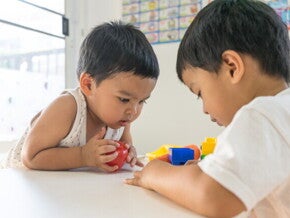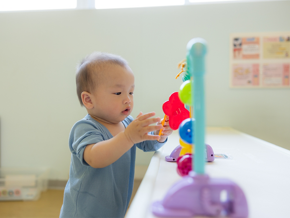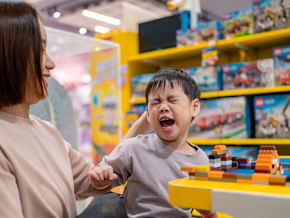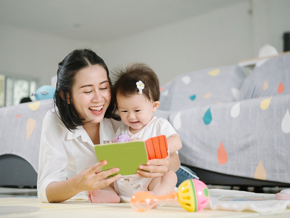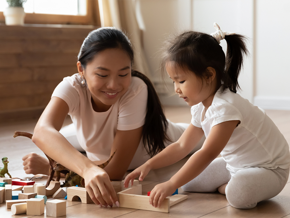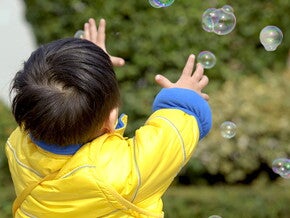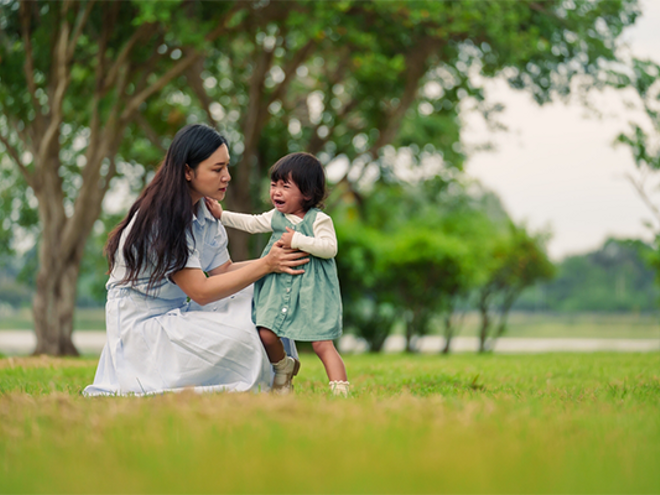
How to Control Emotions: 9 Ways to Help Toddlers Who Feel Too Much
If you’ve ever Googled "how to control emotions" after your toddler threw themselves dramatically on the floor for no reason, you’re not alone. Big feelings are part of the toddler experience. They don’t just feel, they feel. Happiness is squeals, sadness is sobbing into their snack, and anger? That’s usually a full body performance.
According to an article published in Current Opinion in Behavioral Sciences, the prefrontal cortex and the amygdala are some of the regions of the brain involved in emotional processing. The researchers believe these brain regions, which are responsible for regulating or controlling emotions, develop more slowly. The National Institute of Mental Health also states the prefrontal cortex is one of the last areas to fully develop.
This slower maturity may help explain why toddlers and preschoolers can go from calm to overwhelmed in a flash. Their brains are still learning how to process big feelings. But it also depends on what's happening around them, whether they're dealing with something good or something challenging.
The good news is that with your guidance, they can learn to manage their feelings in healthy, constructive ways.
Why It’s Important to Teach Toddlers to Manage Their Emotions
When you teach your kids how to control emotions at a young age, they learn how to build lasting friendships, problem solve, and cope with frustration.
The American Academy of Pediatrics says this skill lays the foundation for academic success and healthy social relationships later on. They also learn how to show more empathy. A Filipino study published on Child Research Net and conducted in 2023-2024 also highlights that kids who can self-regulate are more resilient.
Guiding your toddler through their feelings now not only calms the chaos but also gives them skills to thrive.
How to Teach Toddlers to Cope With Big Feelings
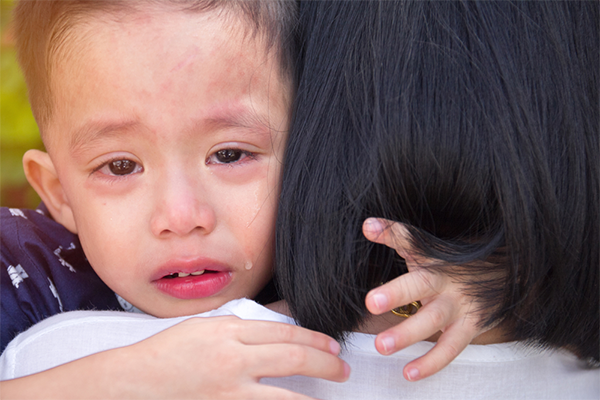
Toddlers who understand emotional self-regulation are more resilient than others.
Here are nine mom-approved, science-backed strategies to help your toddler handle those tidal waves of emotion, without losing your own calm in the process.
1. Name their feelings out loud.
Helping your child label their emotions helps them make sense of their feelings better. If your toddler is crying because you turned off the TV, say, “You’re feeling sad because TV time is over.”
Doing this lets kiddos build their vocabulary for self-regulation. Over time, they’ll learn that emotions have names and that makes it easier for them to deal.
2. Validate before you correct.
It’s tempting to tell kids to “Stop crying” or “Don’t hit” but validation is the bridge to cooperation. The Child Mind Institute notes that when kids feel heard, they’re more open to guidance.
For example, you might say, “I understand you’re angry because your tower fell down,” before helping them rebuild. You’re showing them that feelings are okay, even if certain actions (like throwing blocks) are not.
3. Use calm-down corners.
A calm-down corner isn’t a place for punishment. It’s a safe, cozy space where your toddler can take a break when emotions get overwhelming. Think soft pillows, a favorite stuffed animal, maybe some board books.
ChildSavers recommends creating a “calm-down box” filled with sensory and soothing items to help kids learn how to self-regulate their emotions You can even model using it yourself when you need a moment to breathe.
4. Teach “first calm, then problem solve.”
Toddlers can’t solve problems when they’re in meltdown mode and neither can adults (if we’re being honest). According to the APA, calming techniques like deep breathing, counting to five, or taking a sip of water help bring their nervous system back to baseline.
Once they’re calm, you can revisit the situation: “Now that we’re feeling better, what can we do if the block tower falls again?”
5. Offer choices.
Much of toddler frustration comes from feeling powerless. A 2019 study in Positive Psychology shows that giving age-appropriate choices helps reduce tantrums and builds independence.
Instead of “Put on your shoes,” try, “Do you want to wear the red shoes or the blue shoes?” The outcome is the same—shoes go on—but your toddler feels respected and involved.
6. Model the behavior you want to see.
Kids are expert copycats. If you slam the cupboard when you’re annoyed, don’t be surprised if they follow suit.
The Child Mind Institute emphasizes that parents who model healthy coping—like saying, “I’m feeling frustrated, so I’m going to take three deep breaths”—give their children a live tutorial in managing emotions.
7. Prepare for triggers in advance.
If you know transitions are hard, give warnings: “Five more minutes of play, then it’s bath time.” If hunger causes meltdowns, keep snacks on hand.
The Managing Preschool Aggression guidelines from the APA highlight that proactive planning reduces emotional blow-ups by removing common stressors.
8. Use play to teach self-regulation.
Games like “Red Light, Green Light” or “Simon Says” aren’t just fun—they’re practice in listening, stopping, and starting on cue.
A 2023 study published in the International Journal of Progressive Education points out that playful approaches help toddlers develop impulse control without the pressure of discipline. Even pretend play with dolls can become an opportunity to talk about feelings and problem-solving.
9. Keep routines predictable.
Toddlers thrive on knowing what comes next. Nemours KidsHealth explains that consistent routines give children a sense of safety, which lowers anxiety and helps with managing emotions.
This doesn’t mean you can’t be spontaneous—it just means meals, naps, and bedtimes happen around the same time each day. Predictability is like emotional bubble wrap for toddlers.
Helping your toddler learn how to control emotions isn’t about making them happy all the time—it’s about giving them the tools to handle whatever they feel. Some days, you’ll feel like a toddler-whisperer.
Remember: every calm conversation, every moment of patience, every labeled feeling is building their lifelong emotional toolkit. And that’s a gift they’ll use long after they outgrow their toddler shoes.
References
Moore, C. (2019, February 8). 19+ Innovative Ways to Teach Emotional Intelligence to Kids. PositivePsychology.com. https://positivepsychology.com/emotional-intelligence-for-kids/
American Academy of Pediatrics. (2023). Emotional development in early childhood. AAP. https://www.aap.org/en/patient-care/early-childhood/
American Psychological Association. (2023). How to help kids understand and manage emotions. APA. https://www.apa.org/topics/parenting/emotion-regulation
Child Mind Institute. (2022, October 24). How to help children calm down. https://childmind.org/article/how-to-help-children-calm-down/
Öksüz, Hatice, and Eda Güneyli. 2023. "The Relations between Preschool Children's Self-Regulation Skills and Play Skills." International Journal of Progressive Education 19 (4): 111–125. https://ijpe.inased.org/makale/3584.
Lishner, A. A., & Eisenberg, N. (2023). Emotion regulation in toddlerhood: Regulatory strategies in anger and fear eliciting contexts at 24 and 30 months. Developmental Psychology, 59(8), 1541–1553. https://pmc.ncbi.nlm.nih.gov/articles/PMC10216924/
Mingoa, T., Hernandez, K., Paguio, D., Rice, A., & Tapales, M. R. (2024). Filipino teachers’ understanding and promotion of social-emotional skills and resilience among 4- to 6-year-old children. Child Research Net. https://www.childresearch.net/projects/pdf/crn_asia_2024_05.pdf
ChildSavers. (2020, August 11). Self-care for kids by age: Everything you need to know. https://www.childsavers.org/self-care-for-kids-by-age/
Nemours KidsHealth. (2024, October). Disciplining your toddler. https://kidshealth.org/en/parents/toddler-tantrums.html













